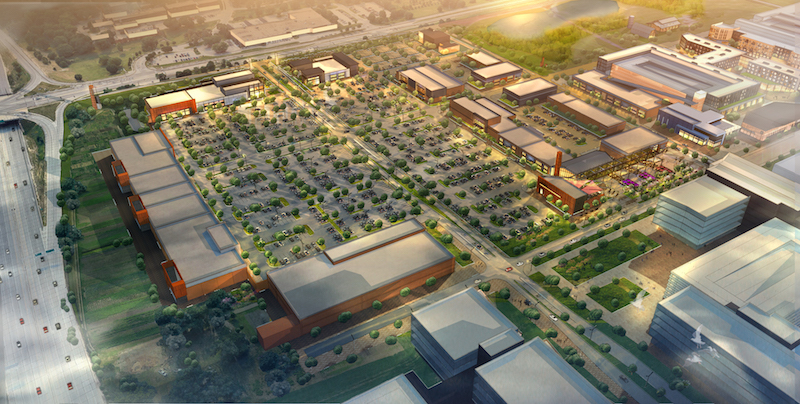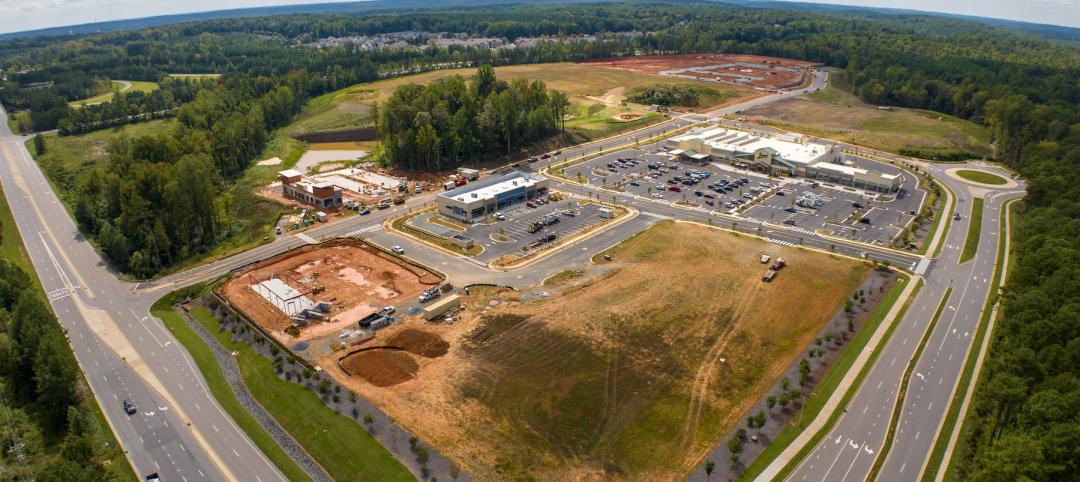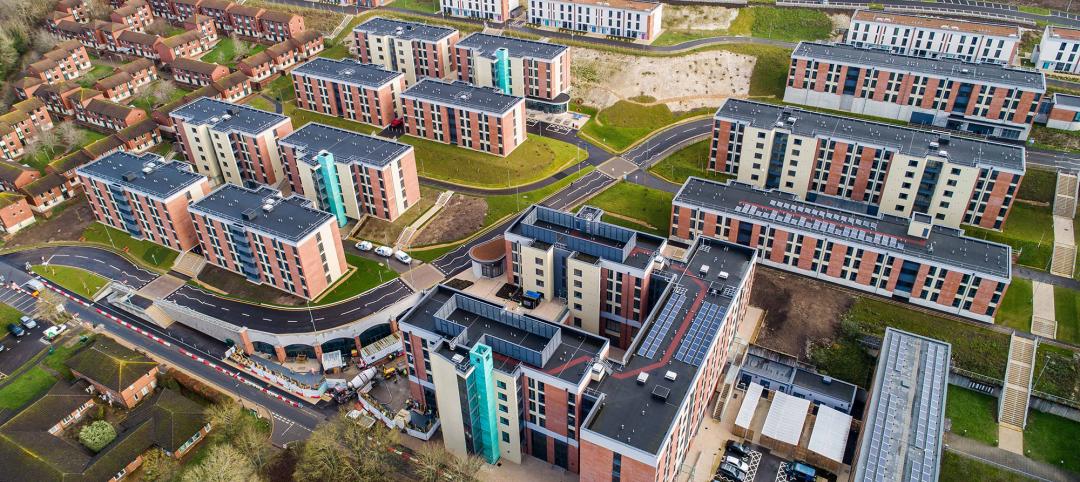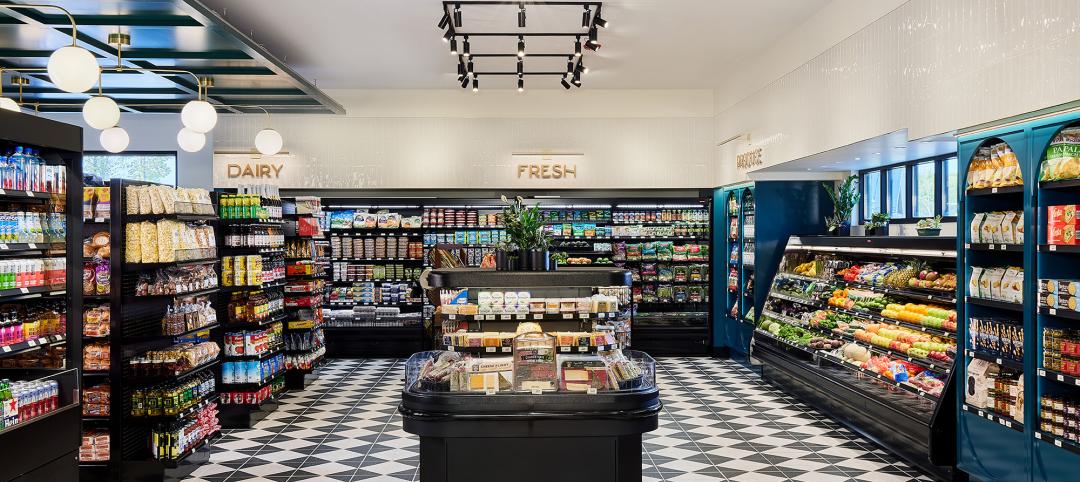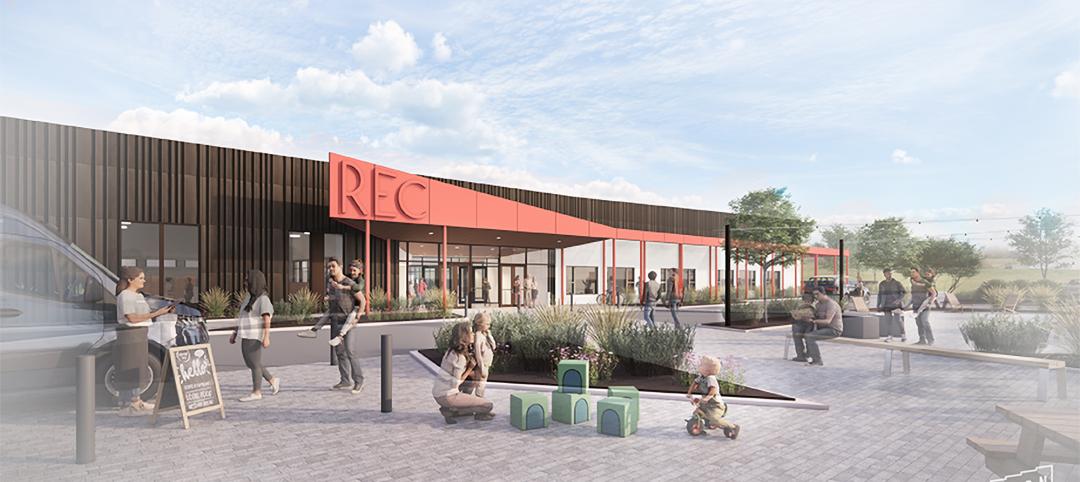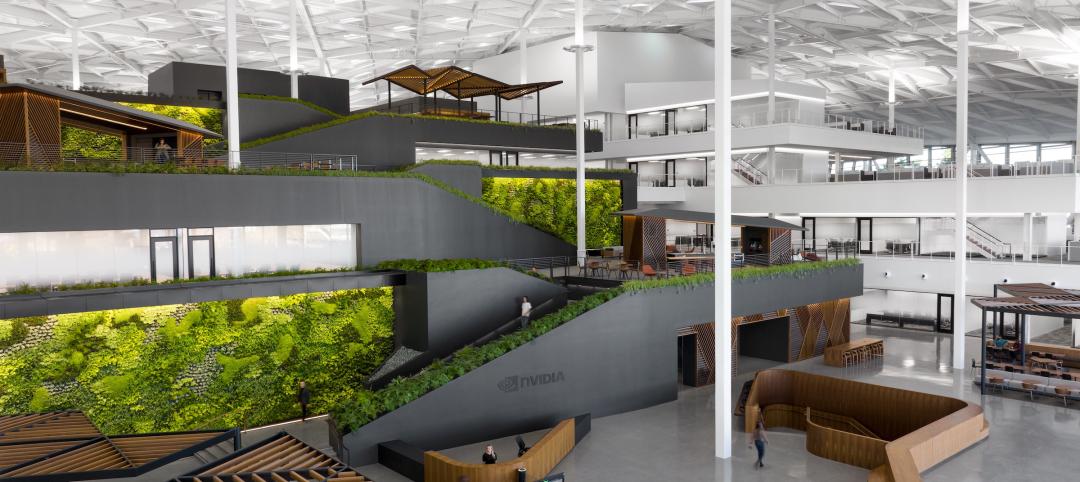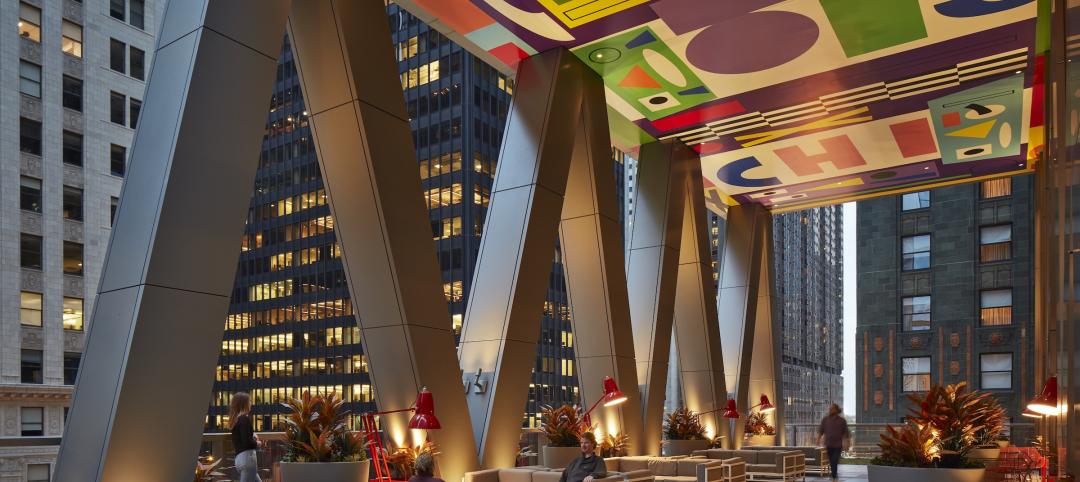This spring, construction is expected to begin on the first phases of West Farm, a 500-acre, $1.2 billion live/work destination in Omaha, Neb., that, when built out over the next 15 years, will include 1.36 million sf of office space, 500,000 sf of retail, 1,900 apartments and townhouses, 400 single-family homes, and a 300-room hotel.
Retail will account for one-quarter of West Farm, and parks, trails, and recreation areas one-third of its total space. The daytime population of West Farm at its completion is projected to exceed 15,000.
To assemble the land for West Farm, its developer Noddle Companies paid $64 million to the historic Boys Town Village and the DeMarco family. Applied Underwriters intends to build its corporate headquarters on the southern part of this development, and Noddle has been soliciting other Omaha-area businesses to lease office or retail space within the neighborhood. (The Omaha World-Herald reports that the Noddle-Applied team began meeting last year with key national retailers they wanted for this project.)
The city has created a sanitary and improvement district as a means to finance the $68 million needed to install streets, sewers, and other infrastructure for West Farm.
While a general contractor has yet to be named, Lamp Rynearson is West Farm’s civil engineer, and HDR is providing land planning and office architecture and design services. San Francisco-based SB Architects was brought in as the architect for the other buildings and to work on West Farm’s layout.
Bruce Wright, AIA, LEED AP, a Vice President and Principal with SB Architects, tells BD+C that he received a call last Spring from Noddle’s Partner and Senior Vice President Frank Barber about coming onto the West Farm development. Barber was familiar with SB from its work on Santana Row, a large mixed-use live/work community in San Jose.
“I had never been to Omaha, and was skeptical,” Wright admits. “But this has turned out to be a fabulous project, which could open the door for us for other projects in the Midwest.”
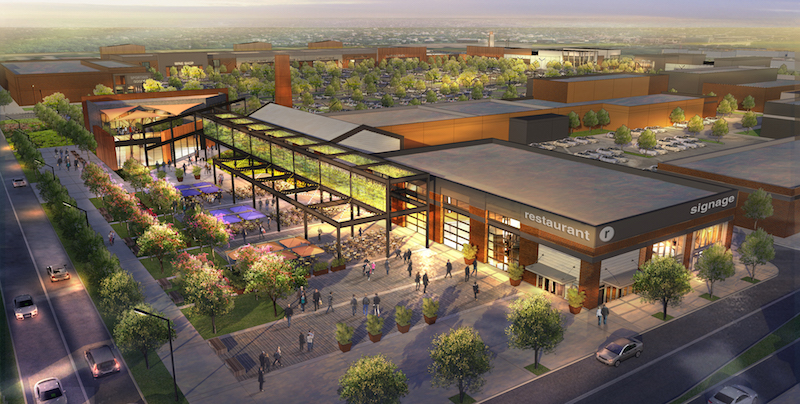
Retail will be a big factor at West Farm, with a marketplace running along its east axis, and entertainment venues along its west axis. Image: SB Architects
SB made some changes to West Farm’s master plan, which had originally been drawn up by Urban Design Associates. SB broke down the site into “different experiences,” says Wright, with more emphasis on creating a pedestrian environment.
Retail, says Wright, will be organized along West Farm’s east-west axis, with a marketplace/outdoor mall on the east side, and nightlife/entertainment venues on the west side, buttressed by a series of alleys, plazas, and courtyards. “This is a first for Omaha,” says Wright.
West Farm—which may not be the name this development ends up being called, says Wright—will be part of the city of Omaha, although Noddle and Applied will continue to own the bulk of the property and maintain the trail system and community spaces.
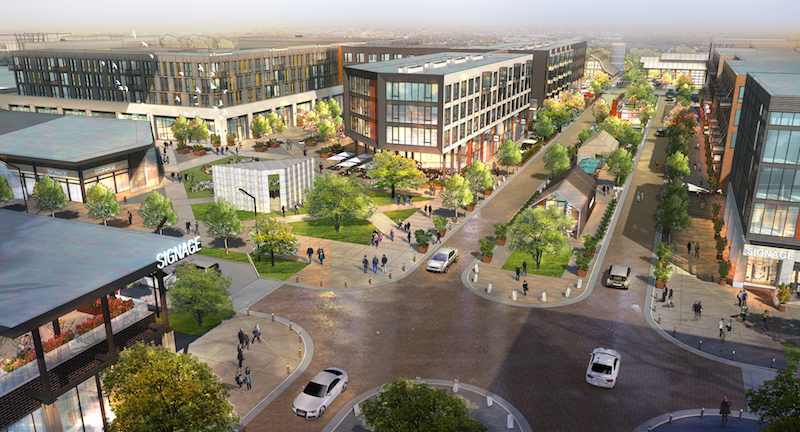
The master plan for West Farm now places greater emphasis on creating a pedestrian environment, supported by courtyards and plazas. Image: SB Architects
The World-Herald reports that Noddle has set up a temporary on-site storage area for 120 trees that were removed during site preparation, which will be replanted strategically as the vertical construction proceeds.
Noddle and Applied have also committed to capital improvements that are likely to benefit surrounding communities and schools with better roads and recreational facilities.
Related Stories
Mixed-Use | Oct 5, 2023
Mixed-use pieces supporting a master plan in North Carolina fall into place
Near Chatham Park, a new multifamily housing community follows the opening of a shopping center.
Contractors | Sep 25, 2023
Balfour Beatty expands its operations in Tampa Bay, Fla.
Balfour Beatty is expanding its leading construction operations into the Tampa Bay area offering specialized and expert services to deliver premier projects along Florida’s Gulf Coast.
Mixed-Use | Sep 20, 2023
Tampa Bay Rays, Hines finalize deal for a stadium-anchored multiuse district in St. Petersburg, Fla.
The Tampa Bay Rays Major League Baseball team announced that it has reached an agreement with St. Petersburg and Pinellas County on a $6.5 billion, 86-acre mixed-use development that will include a new 30,000-seat ballpark and an array of office, housing, hotel, retail, and restaurant space totaling 8 million sf.
Adaptive Reuse | Sep 19, 2023
Transforming shopping malls into 21st century neighborhoods
As we reimagine the antiquated shopping mall, Marc Asnis, AICP, Associate, Perkins&Will, details four first steps to consider.
Resort Design | Sep 18, 2023
Luxury resort provides new housing community for its employees
The Wisteria community will feature a slew of exclusive amenities, including a market, pub, and fitness center, in addition to 33 new patio homes.
Adaptive Reuse | Aug 31, 2023
Small town takes over big box
GBBN associate Claire Shafer, AIA, breaks down the firm's recreational adaptive reuse project for a small Indiana town.
Giants 400 | Aug 22, 2023
Top 115 Architecture Engineering Firms for 2023
Stantec, HDR, Page, HOK, and Arcadis North America top the rankings of the nation's largest architecture engineering (AE) firms for nonresidential building and multifamily housing work, as reported in Building Design+Construction's 2023 Giants 400 Report.
Giants 400 | Aug 22, 2023
2023 Giants 400 Report: Ranking the nation's largest architecture, engineering, and construction firms
A record 552 AEC firms submitted data for BD+C's 2023 Giants 400 Report. The final report includes 137 rankings across 25 building sectors and specialty categories.
Giants 400 | Aug 22, 2023
Top 175 Architecture Firms for 2023
Gensler, HKS, Perkins&Will, Corgan, and Perkins Eastman top the rankings of the nation's largest architecture firms for nonresidential building and multifamily housing work, as reported in Building Design+Construction's 2023 Giants 400 Report.
Adaptive Reuse | Aug 17, 2023
How to design for adaptive reuse: Don’t reinvent the wheel
Gresham Smith demonstrates the opportunities of adaptive reuse, specifically reusing empty big-box retail and malls, many of which sit unused or underutilized across the country.


